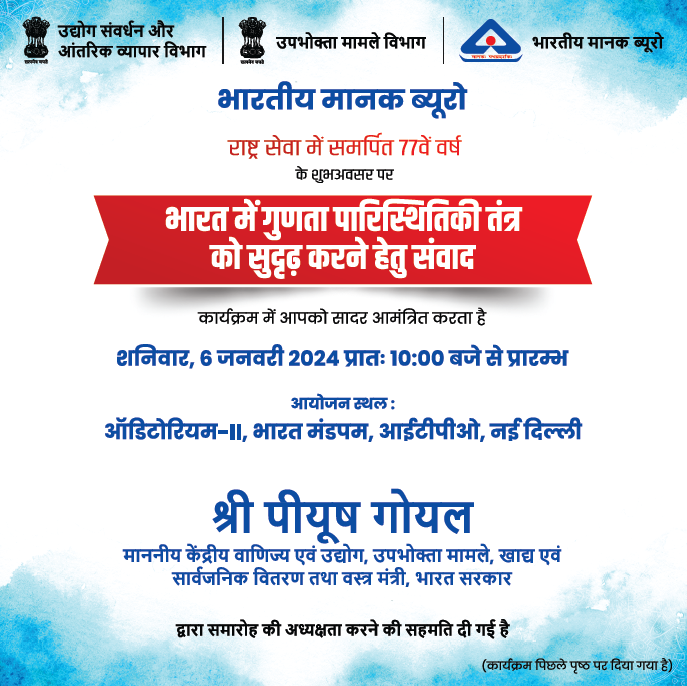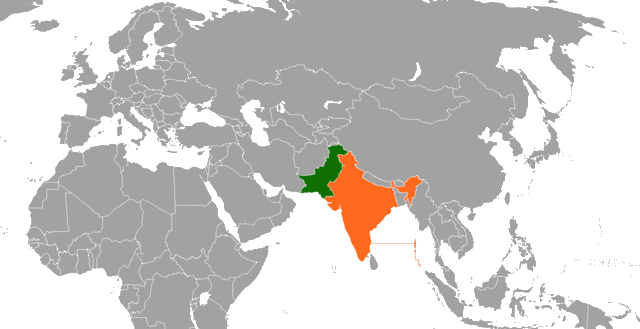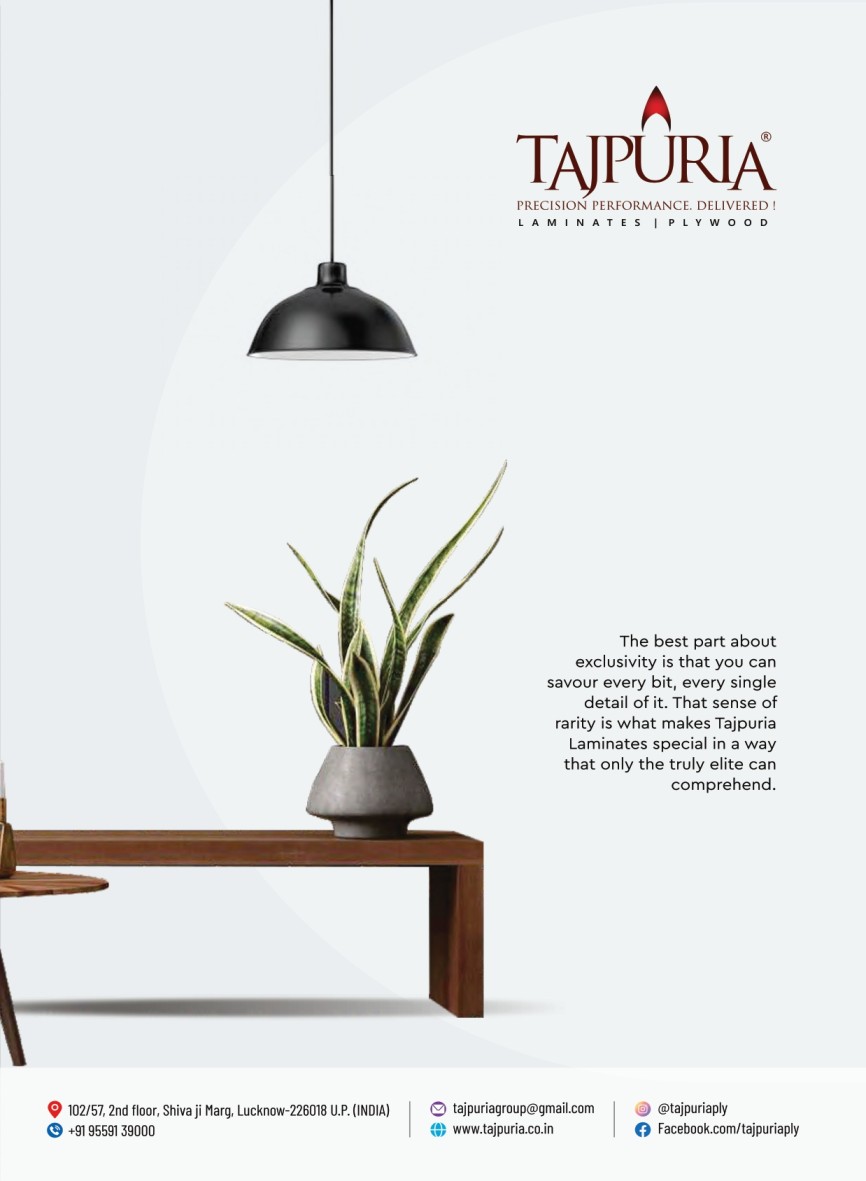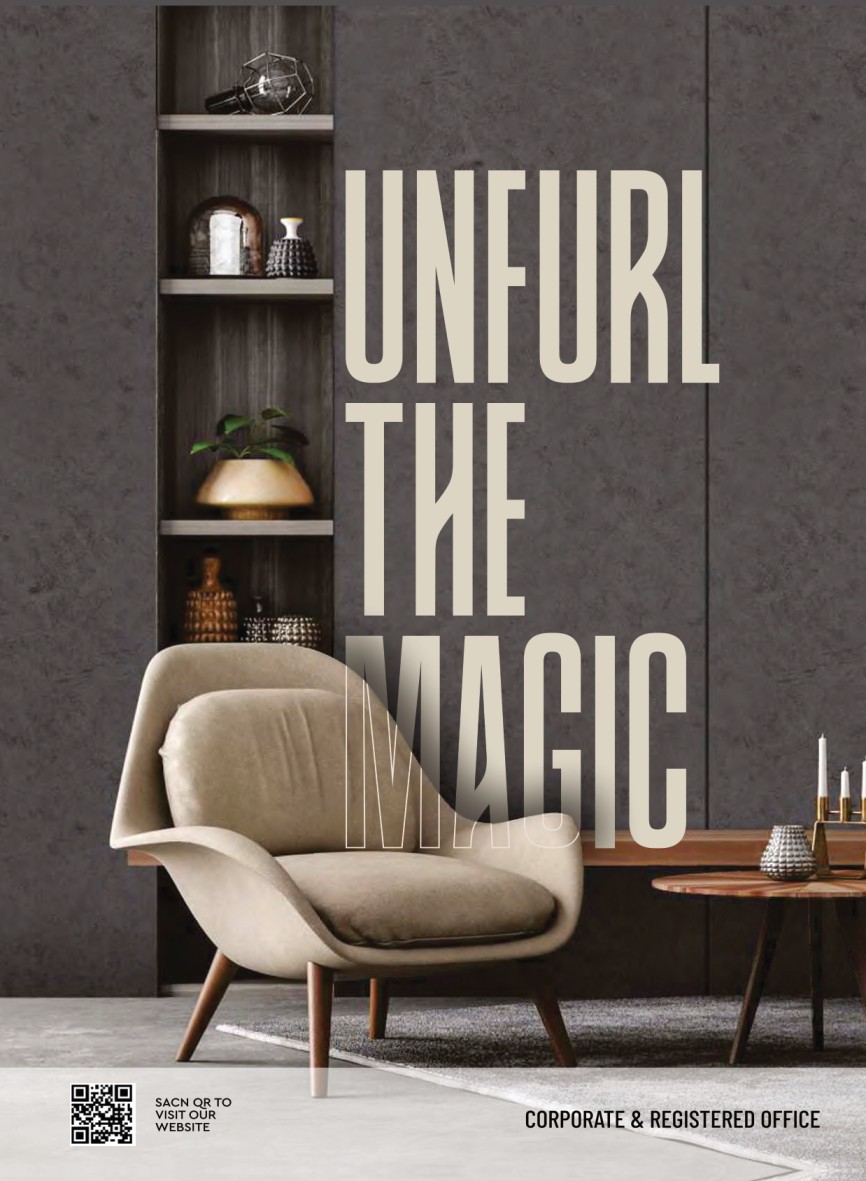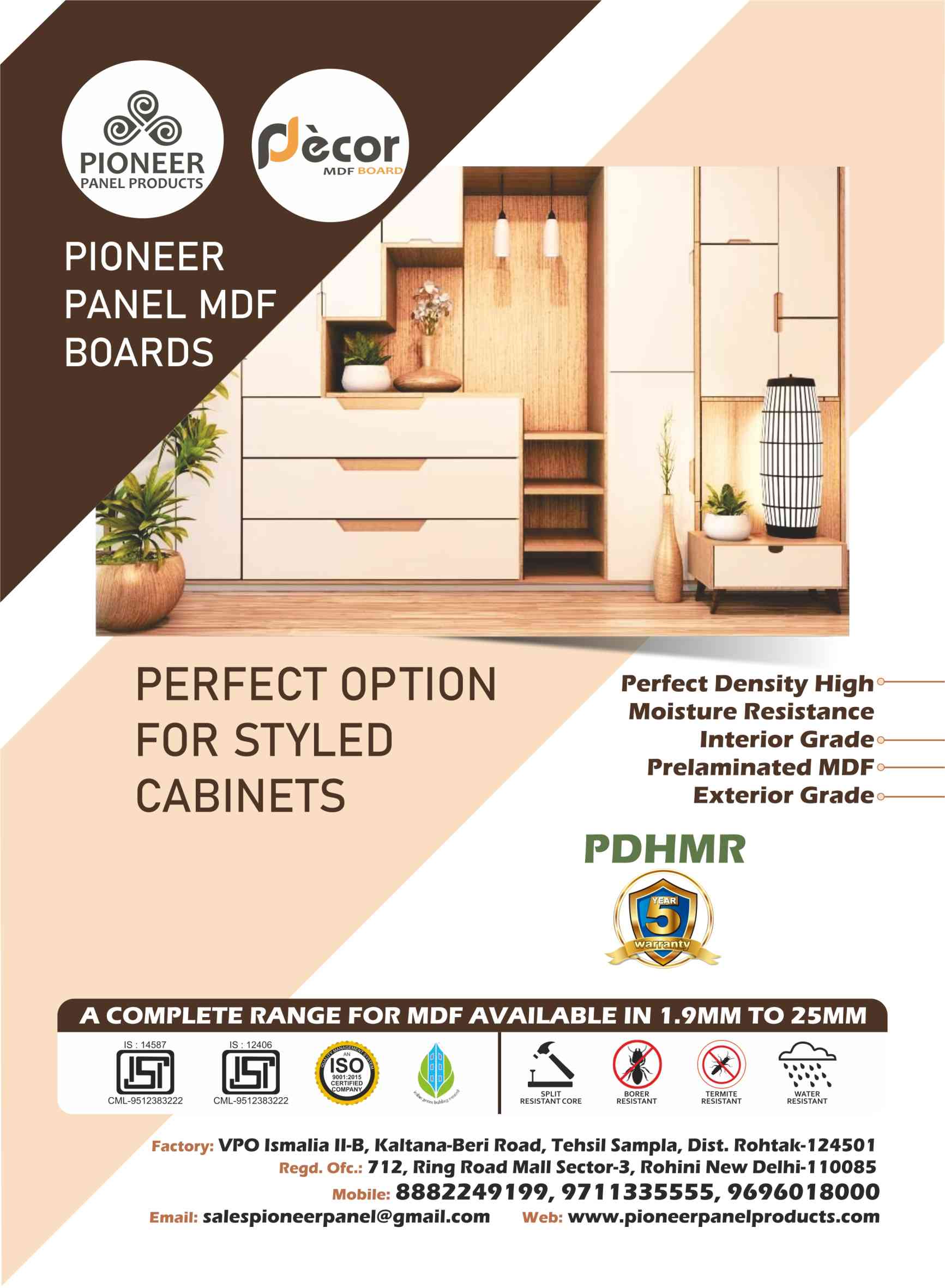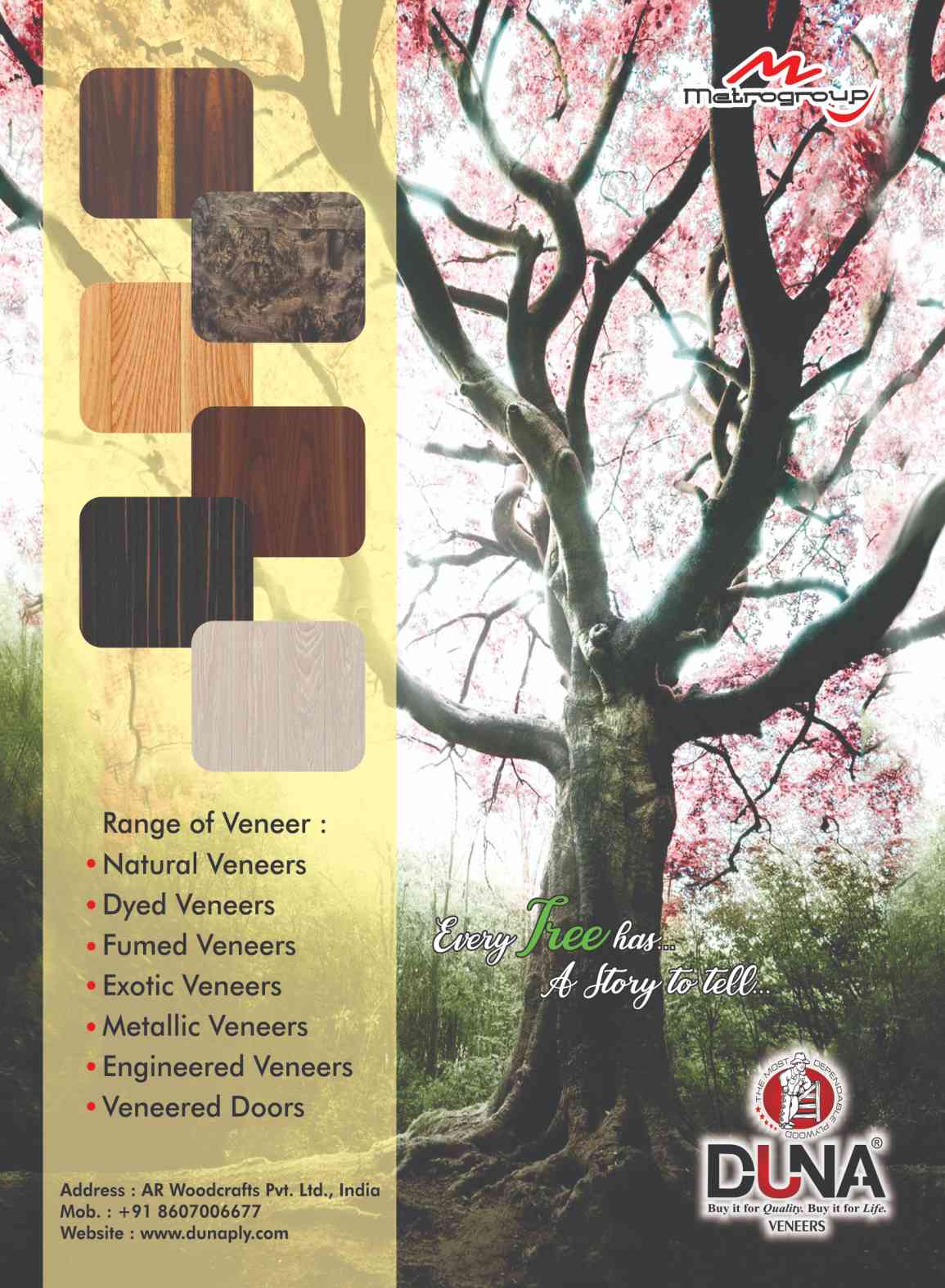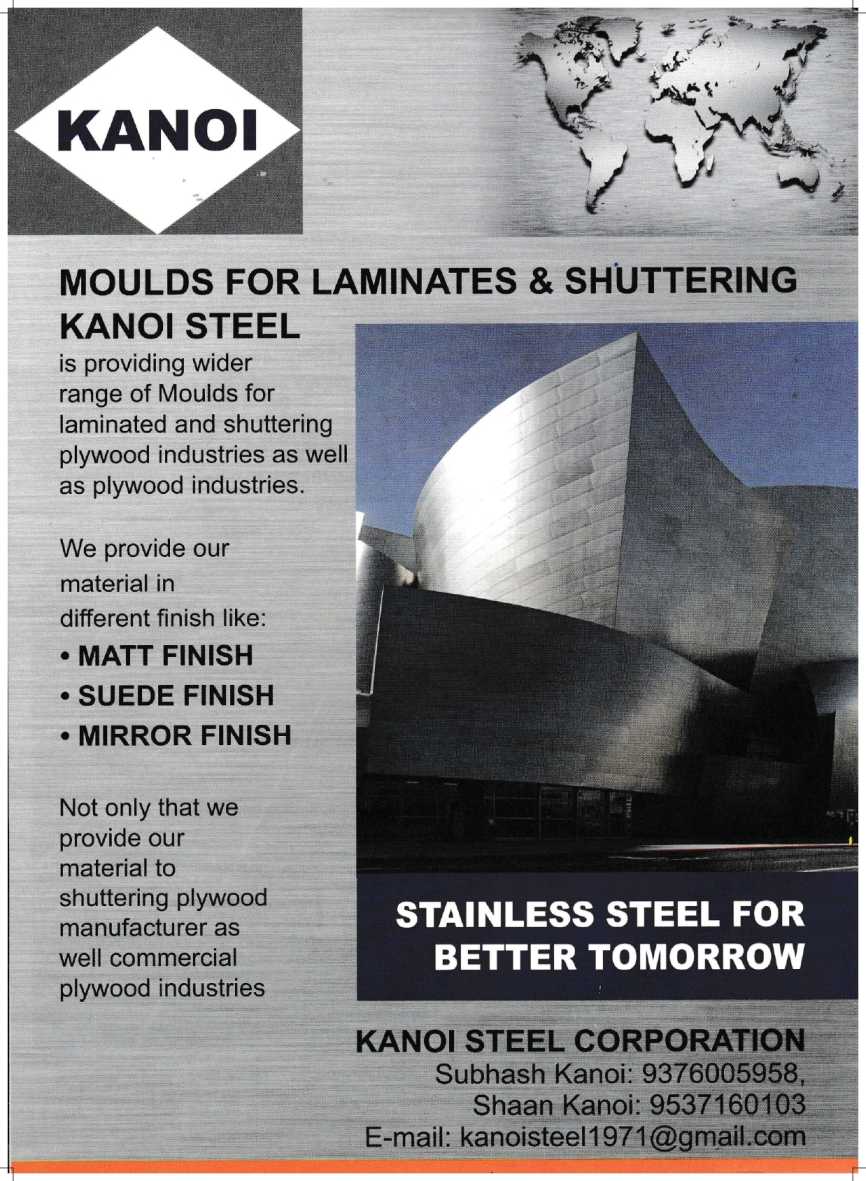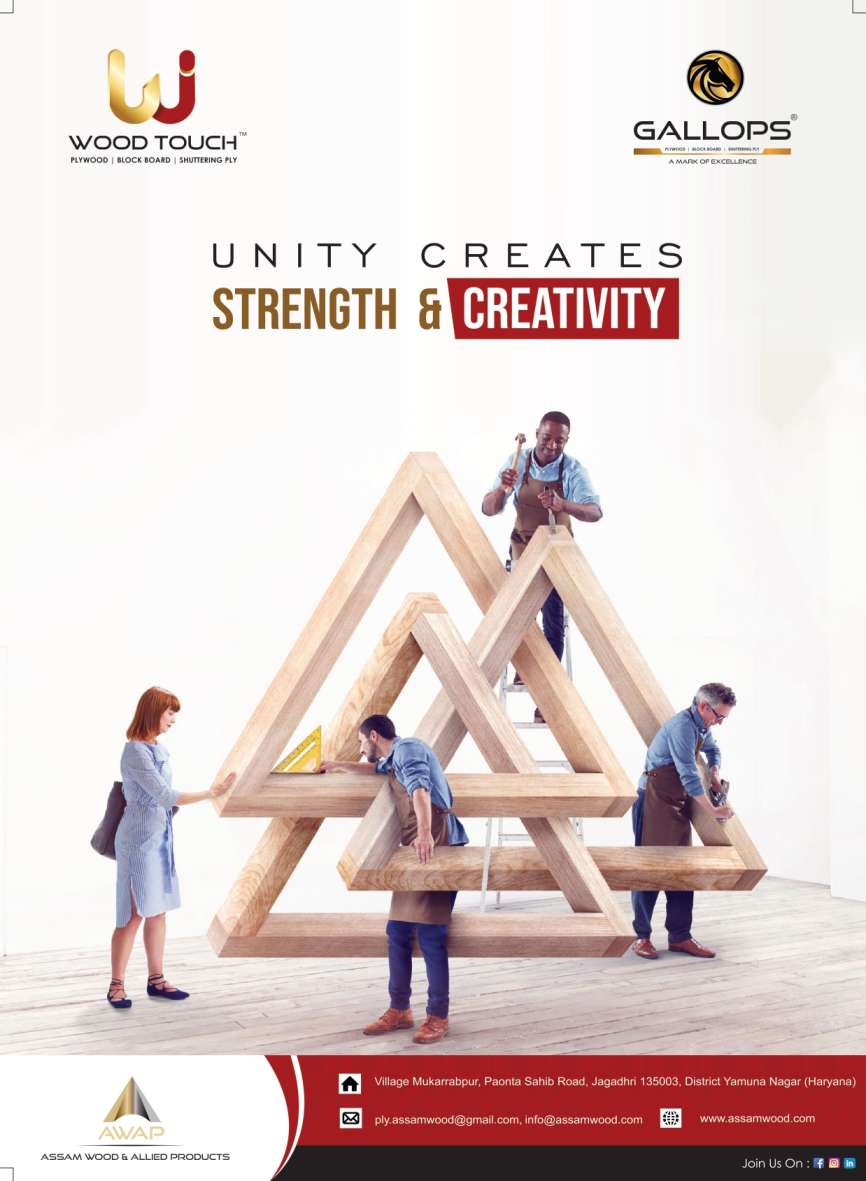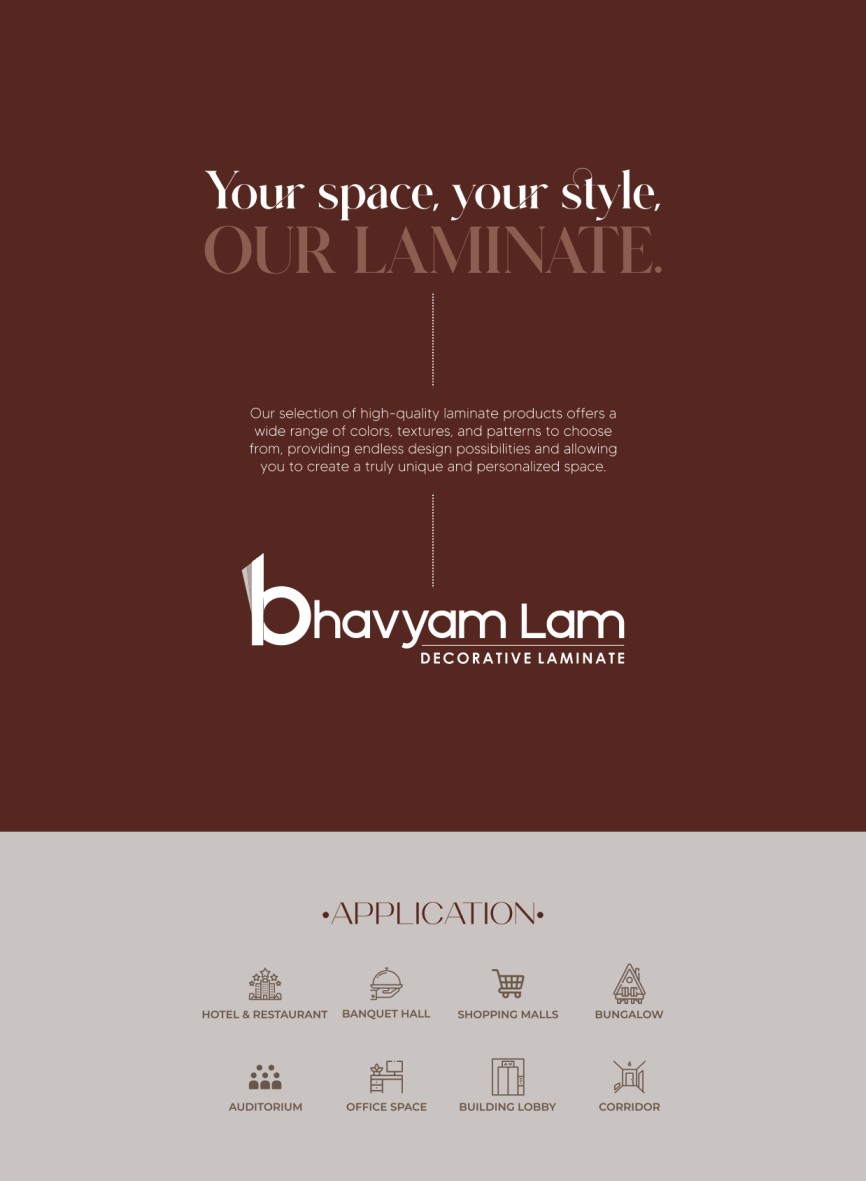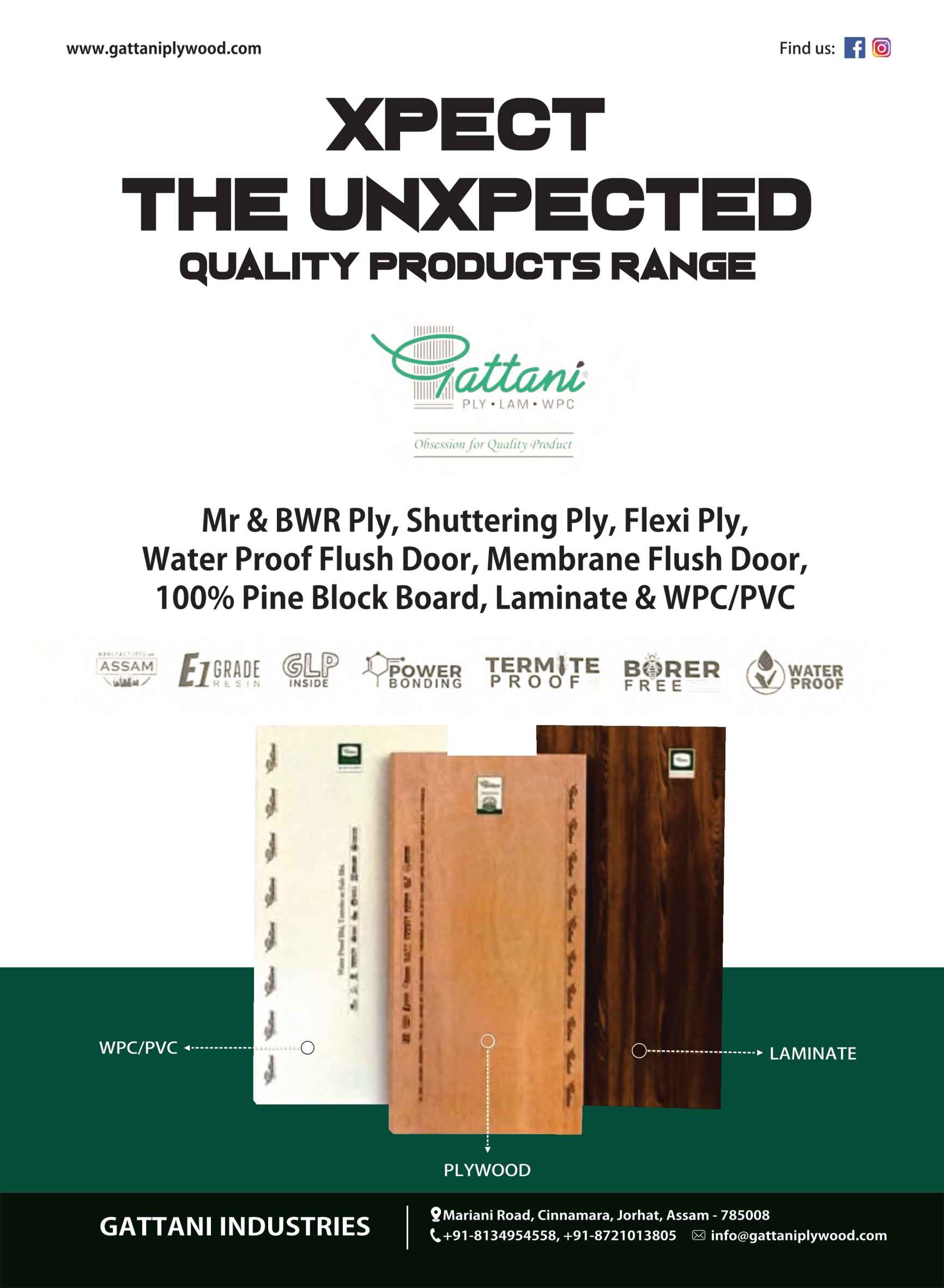
Industry should Formally Submit their Concerns
- December 15, 2023
- 0
A Webinar was conducted on 03 November, 2023 by DPIIT (Department for Promotion of Industry and Internal Trade) to address concerns of industry in implementation of quality control order (2023) of wooden based boards, plywood and wooden flush doors and resin treated compressed wood laminates.
The meeting was chaired by Sri. Sanjiv joint Secretary, DPIIT.
The Meeting was attended by various members of industry along with representative of officials of MSME and BIS and participated by:-
1. Sh. Jaydeep Chitlangia Director, Duro Ply Industries Ltd.
2. Sh. Satyanarayan Chamaria, Director, Eximcorp India Pvt Ltd.
3. Sh. JK Bihani, President Haryana Plywood Manufacturers Association.
4. Sh. Vineet Jain, Director Balaji Action Buildwell.
5. Sh. C.N. Pandey, Technical Advisor, Federation of Indian Plywood and Panel Industries.
6. Sh. Sanjiv Joint Director DPIIT.
7. Dr. MP Singh Director Institute of Wood Science and Technology.
The salient features of discussion are:
JS(S) welcomed all the participants and emphasized on the importance of Quality Control Order (QCO) for Wooden Based Boards, Plywood and Wooden flush door shutters and Resin treated compressed Wood Laminates Quality.
- Summary of Concerns Raised by Industry Representatives, Associations, and FIPPI on Wood Panel Standards:
- Revision of Standards: Concerns raised about the revision of standards for wood products and requested for extension for implementation of QCOs till revisions with respect to different wood products specifications are completed by BIS technical committee
- Introduction of “Utility” Grade/Label: Foremost concern regarding the introduction of the “Utility” grade/label, serving multiple purposes and used in various applications. Highlighted that globally, wood panel manufacturing involves a ‘UTILITY’ grade, allowing non-compliant products to be downgraded but still usable for various applications.
- Outdated Standards: Many BIS standards established with consideration for wood from mature forests; today’s industry relies on wood from agroforestry plantations with different characteristics.
- Juvenile Nature of Wood: Wood sourced from plantations is younger, variable in quality, and lower in properties compared to the matured wood considered in existing standards.
- Wastage Concerns: Fear of wastage (20-30% for plywood; 10-12% for MDF and Particle Board) due to adherence to BIS standards, impacting industrial applications.
- Representatives from Balaji Action Buildwell endorse the proposed QCO. Also raised concern on absence of domestic board manufacturers for domestic veneered particle. Also stated that approximately 10% of MDF and particle boards are substandard and don’t meet BIS criteria, so requested for introduction of an additional category for these goods of varying quality, suitable for domestic sales, especially for purposes like packaging.
- Representative of Aryamman Group sought clarification for imports of product prelaminated plywood, which may not come under the purview of BIS, are used by domestic furniture industry in producing final products.
- Mr. JK Bihani requested for an intervention of BIS to redress the issue of wastage in respect to Blockboards and flush doors, which does not fit the BIS Standards.
- The Representative of Indiana Plywood Industries sought clarification on the examination of products by BIS imported from countries such as Vietnam, Malaysia, and China. Additionally, they raised concerns about the high stamping and marking fees charged by BIS.
- Mr. Anmol from the wood industry expressed concern about the extended waiting period for foreign manufacturers to obtain the BIS license for the new QCO.
- Dr. M. P. Singh, Director, Institute of Wood Science and Technology (IWST) welcomed the efforts of Government for facilitating the stakeholders’ meetings for capturing the problems associated with QCO implementation, request for more such facilitation opportunity for understanding the industries concern along with Government Initiative.
- Few Industries raised the concern about the Inventory stock items, especially for those already manufactured or in transit before implementation of QCO, will be allowed to import.
- The BIS responded as follows:
a) No restrictions on product examination based on origin of the country i.e (Vietnam, Malaysia, China). BIS audit allowed for all countries.
b) The suggestion for standards revision will be reviewed by the BIS technical committee.
c) A grace period for goods clearance post QCO implementation may be considered by the competent authority.
- After due deliberations the meeting concluded that:
a) Industries and industry associations emphasize the need for BIS to revise standards for the specified QCO products and also requested for the extension of QCO’s implement date.
b) Industries and associations are advised to formally submit their concerns, with proper justification, to BIS with a copy to DPIIT regarding revision of the standards.
c) DPIIT requested industries and associations to take necessary actions for the effective implementation of the QCOS.
d) However, the possibility of reviewing the extension for the implementation of above QCOs may be considered, if deemed fit as per written request from the industries/associations with proper justification.



